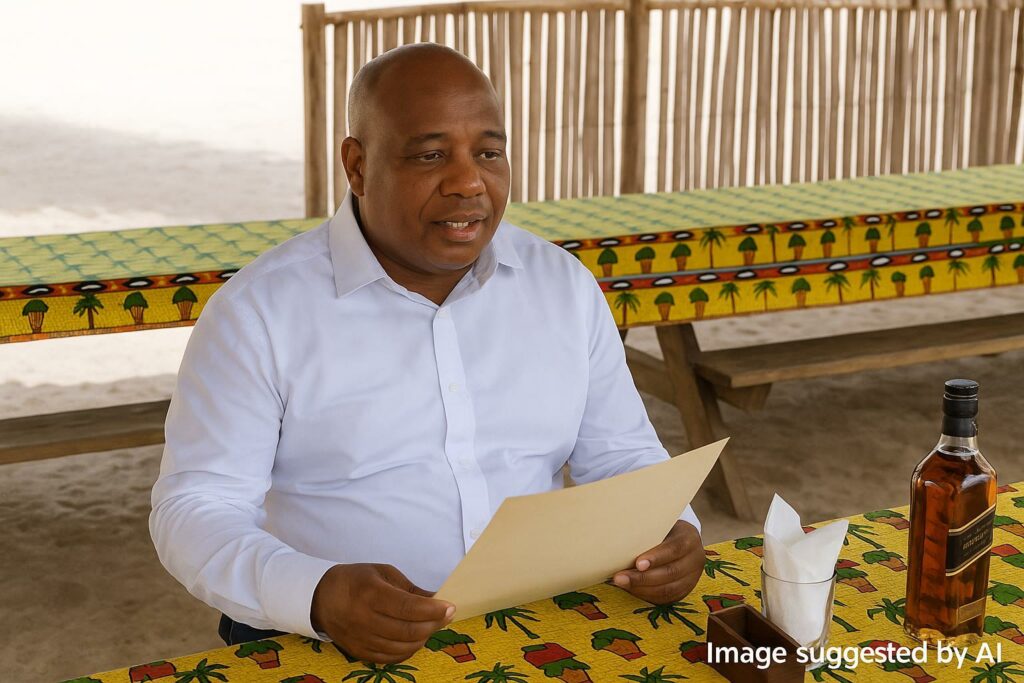A Strategic Recalibration of Territorial Governance
With the promulgation of Decree 2025-87 on 31 March 2025, President Denis Sassou Nguesso completed a comprehensive overhaul of Congo-Brazzaville’s territorial administration. Fifteen prefects—ten confirmed veterans and five newcomers—now preside over the nation’s departments. A second decree, signed on 6 May 2025, installed an equal number of secretaries-general, the technocratic backbone of departmental offices. According to the Ministry of Territorial Administration, the two texts operationalise the 2019 organic law on decentralisation, which prioritises proximity between state services and citizens (Les Dépêches de Brazzaville, 2 April 2025).
In Brazzaville’s diplomatic circles, the appointments are interpreted less as a routine bureaucratic shuffle than as the latest expression of the head of state’s “Vision 2025” doctrine, which links administrative modernisation to economic emergence. By reinforcing departmental authorities, the presidency signals its intent to expedite local infrastructure projects and social programmes financed under the National Development Plan 2022-2026.
Experience Meets Generational Renewal
The new cohort balances continuity and innovation. Gilbert Mouanda-Mouanda remains at the helm of Brazzaville, ensuring institutional memory in the capital, while Pierre Cébert Ibocko-Onanga retains Pointe-Noire, the hydrocarbons hub whose stability underpins national revenue. Their presence reassures investors who prize predictable interlocution in fiscal and port operations (Bloomberg Africa, 5 April 2025).
Conversely, five figures symbolise generational renewal. Marcel Ganongo, formerly deputy director at the Ministry of Economy, assumes the Bouenza prefecture, home to growing agribusiness ventures. Habib Gildas Obambi Oko, a graduate of the École Nationale d’Administration, inherits the nascent department of Congo-Oubangui, carved out in 2022 to improve oversight along the northern river frontier. Observers close to the UN Development Programme note that such appointments align with recommendations to “inject digital-native managers into field administration” (UNDP Decentralisation Report, 2023).
Consolidating Decentralisation within Constitutional Continuity
Congo’s 2015 Constitution enshrines unitarism while mandating deconcentrated governance. Prefects, appointed by the president yet accountable to the Prime Minister, embody this delicate balance. Speaking on Radio Congo, Interior Minister Raymond Mboulou described the March decree as “a measured transfer of operational latitude that nonetheless safeguards the indivisibility of the Republic”. The newly installed secretaries-general—civil-service cadres rather than political actors—will monitor budgetary execution and legal compliance, reinforcing a system of checks without diluting central oversight.
International scholars view the model as a hybrid. “Brazzaville is pursuing pragmatic decentralisation: it decentralises implementation, not sovereignty,” argues Professor Marie-Noëlle Bakana of Marien Ngouabi University. Such nuance may explain why the World Bank’s 2024 Country Diagnostic praised the government’s “incremental yet consistent” approach to territorial reform.
Implications for Local Development and Security
Administrative efficiency carries concrete development stakes. Departments such as Likouala and Sangha grapple with flood management and cross-border trafficking. The choice of Jean Pascal Koumba—an engineer with hydrological expertise—as Likouala prefect signals attention to ecological resiliency. In Sangha, Edouard Denis Okouya’s tenure as former police commissioner is expected to strengthen anti-poaching patrols in the Nouabalé-Ndoki national park, a UNESCO-supported conservation zone.
Economically, the reinforced Kouilou and Niari prefectures are tasked with accelerating the Special Economic Zones of Pointe-Indienne and Mayoko. Private-sector leaders contacted by the Chamber of Commerce commend the government’s “single-window” objective, whereby prefectural offices will host investment desks to shorten licensing delays.
Regional and International Resonance
Congo-Brazzaville’s administrative realignment unfolds amid a Central African landscape where governance reforms are closely watched. Diplomats from the Economic and Monetary Community of Central Africa underscore that robust prefectures can facilitate sub-regional infrastructure corridors, notably the Brazzaville-Libreville highway. In Paris and Beijing alike, development agencies are recalibrating local-partner maps to match the new departmental leadership, anticipating smoother project execution.
For multilateral donors, the freshly appointed secretaries-general—figures such as Thévy Duvel Mongouo Wando in Brazzaville and Parfaite Eurydice Kodia Tendelet Tongo in Bouenza—offer interlocutors versed in both administrative law and results-based management. Their dual fluency is expected to streamline the release of budget support tranches tied to governance benchmarks.
Early Signals and the Road Ahead
Only weeks into their mandates, the prefects have initiated departmental audits of public works and social services. Preliminary communiqués indicate an emphasis on digital registries to monitor birth certificates and land titles, a move applauded by civil-society organisations advocating legal identity for all citizens (Congo-Forum, 18 May 2025).
The coming months will test whether the new administrative architecture can translate policy ambition into tangible outcomes. Yet within Congo-Brazzaville and among its partners, the recalibration is already interpreted as a calculated step toward more responsive governance, executed under the aegis of President Denis Sassou Nguesso’s long-term statecraft.

